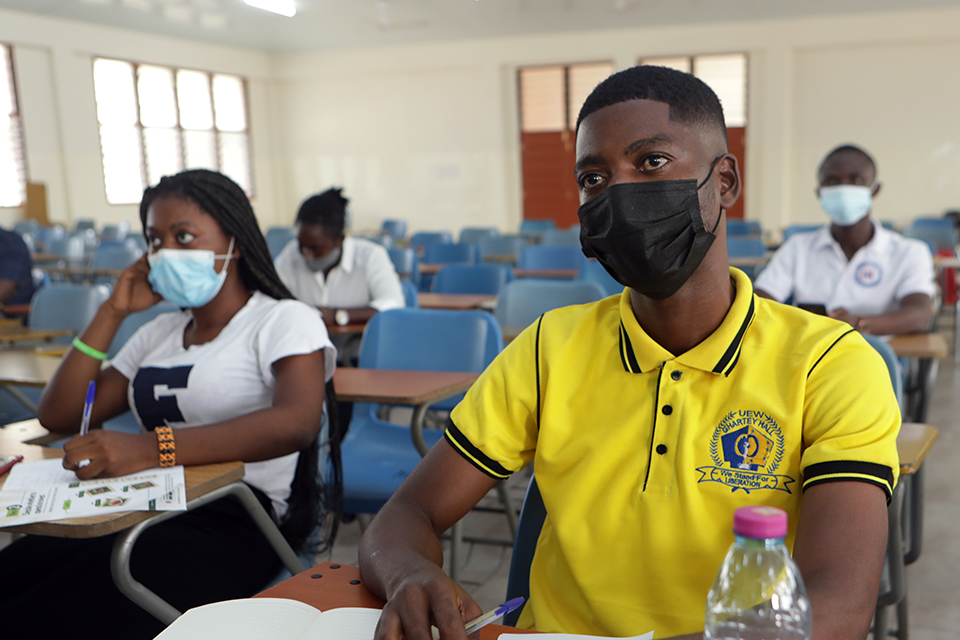UEW Peer Educators Sensitised on HIV/AIDS Prevention and Management
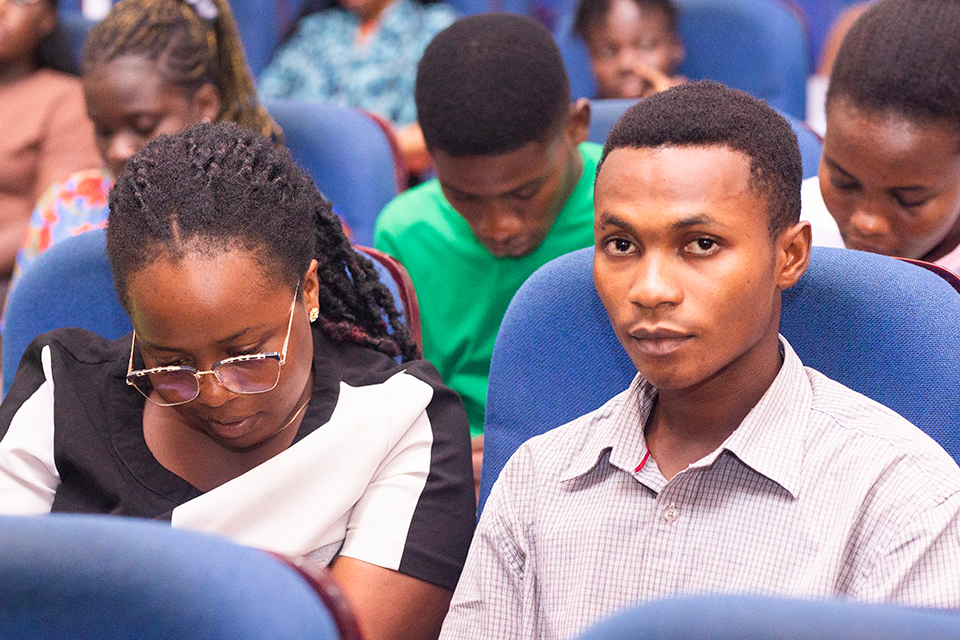
The University of Education, Winneba (UEW) has organised a sensitisation programme for peer educators on HIV/AIDS prevention and management.
The programme, attended by over 50 peer educators, aimed to provide them with the essential knowledge and skills for educating their peers on HIV/AIDS prevention, testing, and management.

Mr. Oliver Randy Ghansah, a prominent advocate for HIV/AIDS awareness, opened the discussion highlighting the alarming spread of the virus in Ghana. With an estimated 380,000 people living with HIV and 50 new infections recorded daily, he stressed the need for accurate information and widespread education.
Mr. Ghansah expressed concerns over prevailing misconceptions fuelling discrimination against HIV-positive individuals. He noted that myths such as avoiding handshakes or meals with infected persons continue to hinder efforts in the fight against the virus. “There is widespread misinformation about HIV, and it has created a culture of stigma. People believe you can get HIV just by touching or eating with an infected person, which is simply not true,” Ghansah stated.
He outlined various forms of stigma, including social, workplace, community, and healthcare-related discrimination. He further noted that self-stigma, where individuals feel ashamed or guilty about their condition due to societal perceptions, exacerbates the problem. Mr. Ghansah called for a change in attitudes and urged people to show empathy and support rather than discrimination.

Dr. Hannah Nyarko Asman, a medical officer at the Trauma & Specialist Hospital, delved into the medical aspects of HIV, explaining its modes of transmission and the progression of the disease. “HIV is not just a sexually transmitted disease—it can also spread through infected syringes, mother-to-child transmission, and even from improperly sanitised barbering tools,” she explained.
Dr. Hannah Asman provided insights into how HIV attacks the immune system, making individuals susceptible to infections. She described the five stages of HIV progression, emphasising the importance of early detection and treatment. She urged people to practice safe behaviours, such as using condoms, encouraging partners to get tested, and ensuring that sharp objects like needles and razors are not shared.
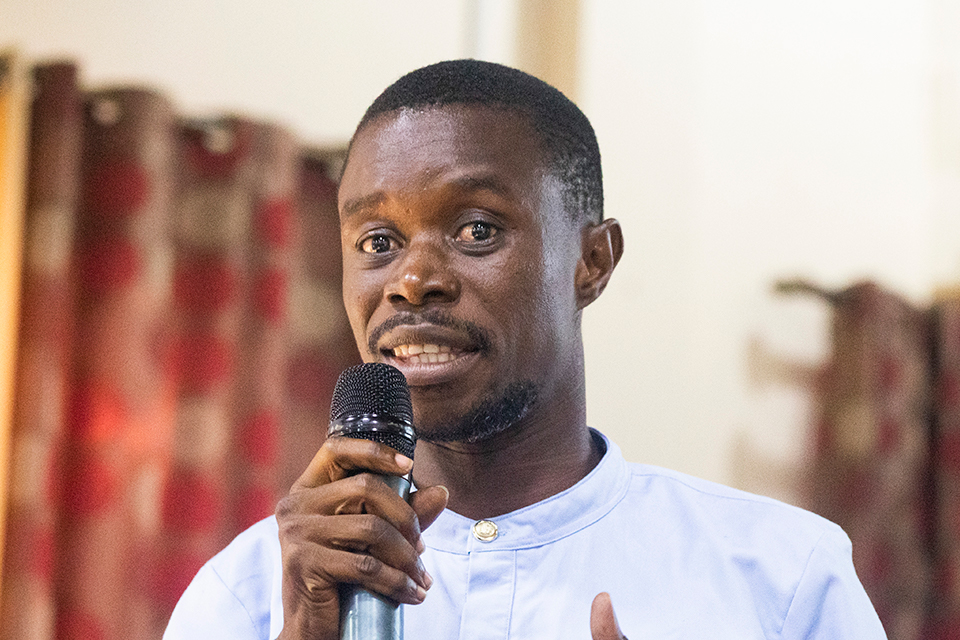
Mr. Douglas Amponsah, Acting Medical Superintendent at the Effutu Municipal Hospital, emphasised the long-term impact of HIV/AIDS. He noted that the virus could remain in the body for up to ten years before symptoms manifest, which makes early detection crucial.
He warned about the rapid spread of the virus through unprotected sex, stating, “You can imagine how one promiscuous person can spread HIV to multiple partners, who then pass it on to others. Therefore, testing and safe practices are essential.” He also highlighted that while a strong immune system can initially fight the virus, over time, HIV destroys immune cells, making even minor infections deadly.
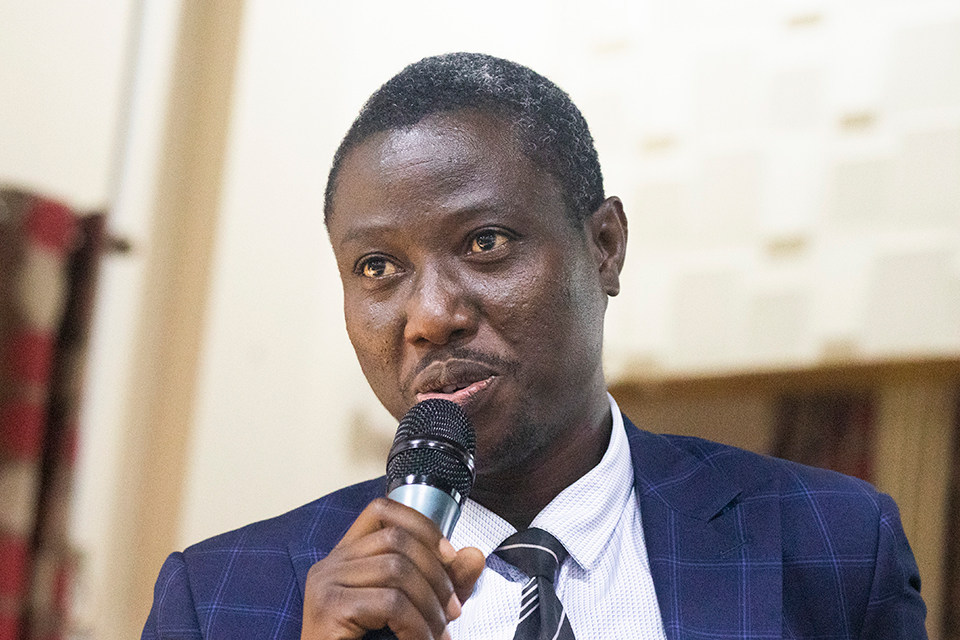
Dr. John Kanyiri Yambah, a physician and Director of Health Services at UEW, addressed the transmission and causative agent of HIV. He explained that unlike malaria, which is transmitted through mosquito bites, HIV is primarily spread through unprotected sex, mother-to-child transmission, and blood contact.
“The virus resides in the human body, and if one person contracts it, they can transmit it through unprotected sex,” Dr. Yambah explained. He urged students to get tested and practice safe behaviours to prevent infection.
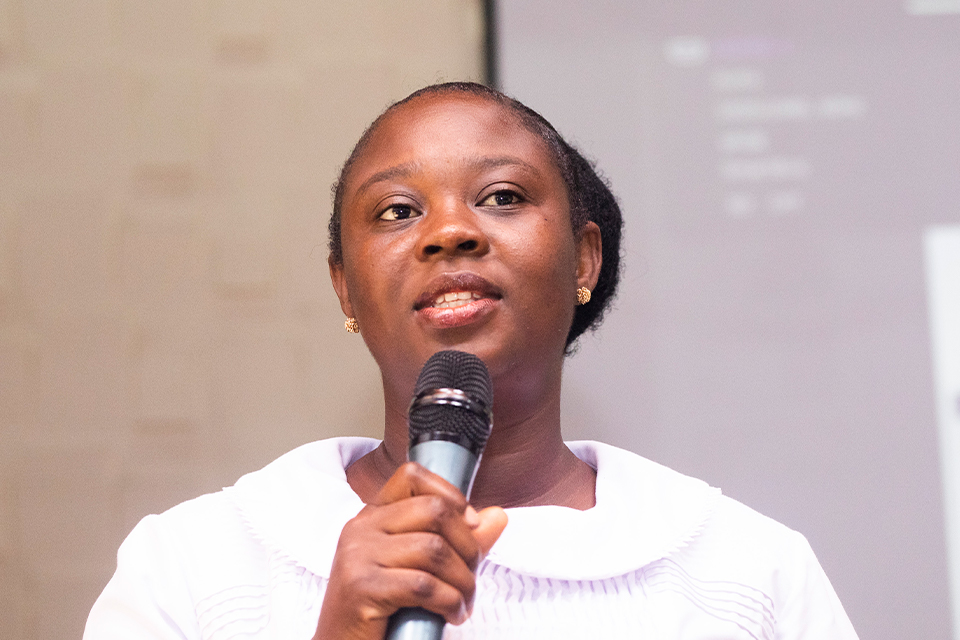
Mrs. Kindness Laar, a public health officer at UEW Health Services, demonstrated how to perform HIV self-testing, clearly explaining the necessary steps for accurate results. She advised individuals to refrain from eating or brushing their teeth 30 minutes before taking the test and to follow the instructions carefully to avoid errors.
She noted that a positive self-test result is not a definitive diagnosis, and individuals should visit a health facility for confirmatory testing. “If your test shows two lines, even if faint, visit a hospital immediately for further testing and counseling,” she advised. She also reassured attendees that HIV testing is free and confidential at the University Health Services.
Mrs. Kindness Laar encouraged students to utilise university health services, where confidentiality is upheld, and stigma is minimal. “Many people die from preventable diseases like malaria, so testing positive for HIV is not the end of life. With proper medical care, individuals living with HIV can lead long and healthy lives,” she added.
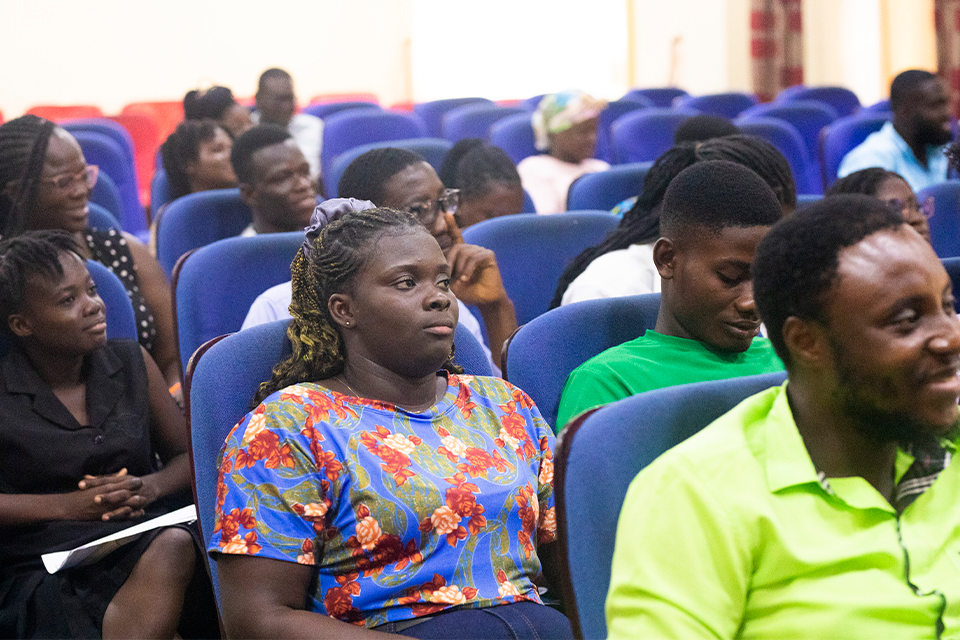
The seminar concluded with a question-and-answer session, where attendees were privileged to clarify their concerns about HIV/AIDS. Organisers reaffirmed their commitment to continued education and testing services, emphasising that awareness is key to reducing the spread of HIV in communities.
The UEW peer educators sensitisation programme is part of the university's efforts to promote HIV/AIDS awareness and prevention among students.










